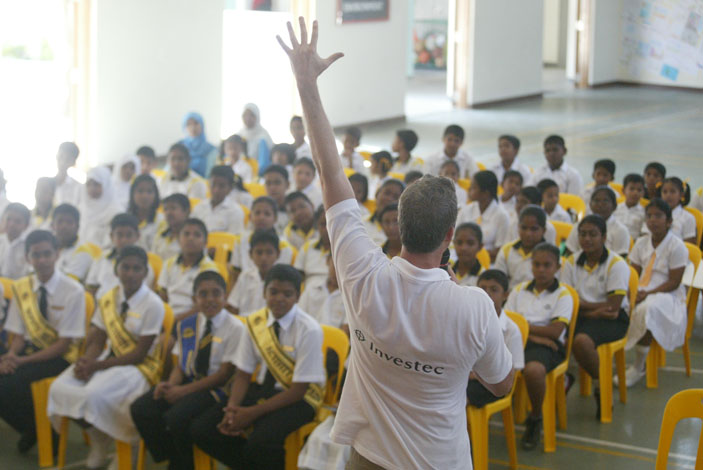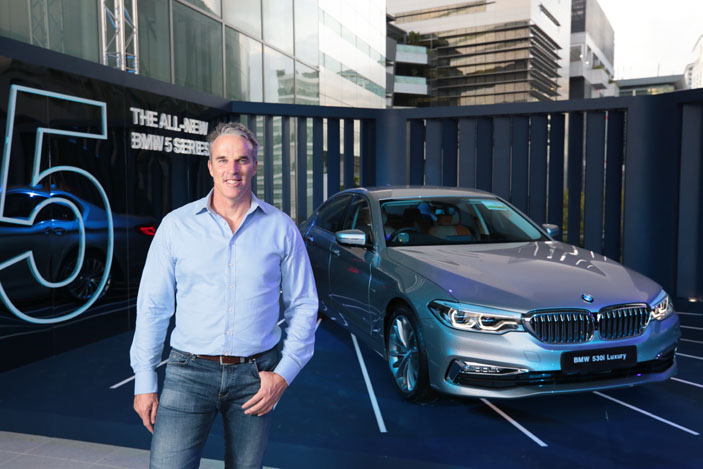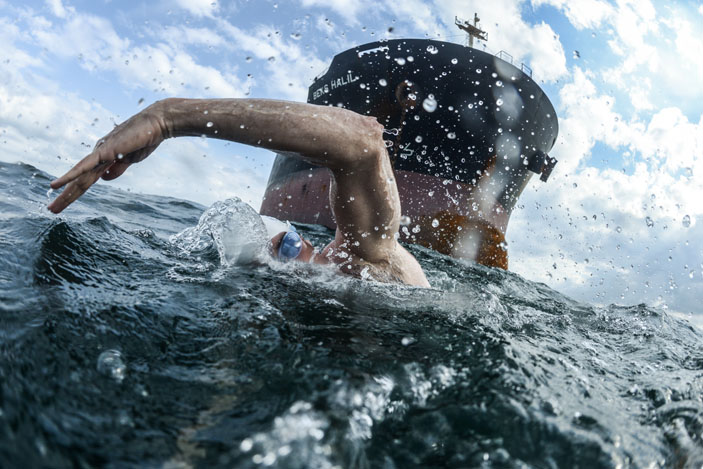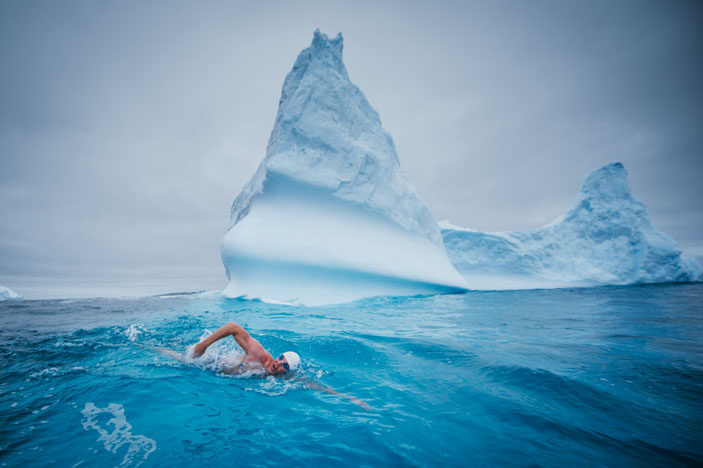WHEN you want to make a point, you should make it with a big splash.
At least that’s how it is for Lewis Pugh, who literally dives into any challenges headlong. That approach has seen him swim all the oceans and take on the big boys of business.
Pugh is a pioneer swimmer who takes the plunge in waters you wouldn’t normally want to even dip a toe into. He’s swum in the proximity of sharks, and in waters just above freezing temperatures, all to make a point. Not so much for himself, but for the planet.

A lawyer by training, Pugh has also taken his adventures on the road. As a motivational speaker, he gets to share his experiences with audiences that may otherwise be oblivious to the plight of the oceans.
He was recently in Singapore for the launch of the new BMW 5 Series. It was quite a launch, with Pugh talking about his swim in icy cold water followed by the unveiling of a hot car.

But every narrative shared is another chance to spread the word.
The Right Negotiating Tool
While his story is wonderfully told on his website, http://lewispugh.com we wanted to find out about his negotiation skills. As a lawyer trained in post-apartheid South Africa, he must have learnt to navigate a whole range of issues.
In swimming, a wrong decision could have dire consequences. In the oceans he swims fast and aggressively. In the thin air of the Himalayas, where you wouldn’t normally expect to find a lake, he had to do the exact opposite and go slow.
When does he take the aggressive route, and when does he tread gently?

“With environment campaigning the first couple of days will determine the success or the failure of that campaign.
Hard On Fracking
“A few years ago I ran the campaign against Shell, who wanted to frack for gas in South Africa. They offered the government and the local inhabitants of this region vast wealth in return.
“They wanted to frack for gas in an area called Karoo, which in the local language means “thirsty land”. Fracking uses huge amounts of water.
“Shell can use huge amounts of resources at any moment, so my opening salvo would determine whether we win or lost. We went in really hard, and it was a two-year battle, in the end they decided to pull out of fracking in South Africa. But it was because we went in very hard.

“On another campaign, trying to protect the Ross Sea down in Antarctica from over fishing, we had to get the agreement of all the 24 nations which govern the waters around Antarctica. But one nation repeatedly vetoed the proposals for five years.
You Might Also Like To Read:
Why is Singapore’s literature like the Nokia 3310?
“It took a different approach than what we did with Shell. We had to go there and have a conversation.
“In any negotiation there’s a promised land. You just have to find it. It’s much like an exploration.
“After two years of negotiation, Russia finally signed that deal. An aggressive approach certainly wouldn’t have worked there.
The Right Approach
“I have to be creative. I have to come up with an idea to convince Russia, which is in the northern hemisphere to protect Antarctica, which is at the bottom of the world.
“We didn’t know what would happen when I arrived in Russia and started campaigning. Two years before, a number of environmental campaigners had been arrested and spent six months in jail for protesting against Russia drilling in the Arctic.
“But the Russians welcomed me and said let’s have a discussion. For two years I shuttled back and forth. I persuaded them that it would be in their best interest, and the world’s, to protect this beautiful part of the world.”

An incident in the Maldives perhaps puts Pugh’s perspective in a more optimistic light, something that’s needed to effect change.
On a mission to swim the 140km breadth of the archipelago to draw attention to its fragility, the support boat’s engine failed.
Pugh and his team were stranded, and the wind was picking up.
A large yacht was on the horizon. But, would the rich owner care enough to come and help. A quick call and minutes later the yacht headed their way.
“Limiting beliefs are dangerous because we don’t know we have them. They stop us asking for what we need. We worry that people will say no. But more often than not, they say yes.”



















